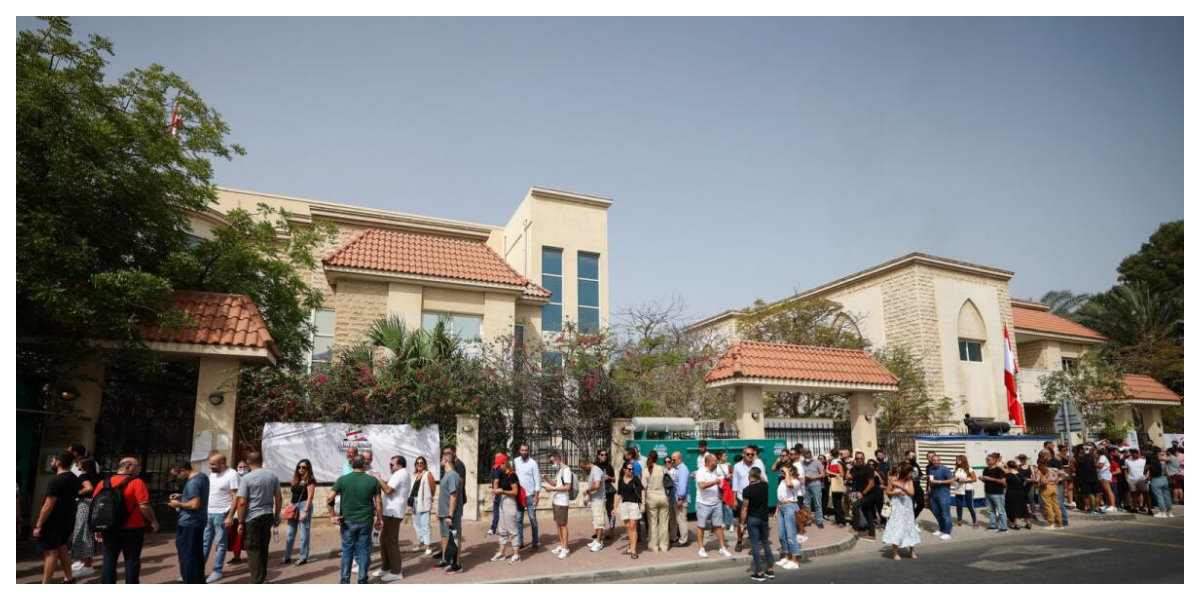State media stated that Lebanese expatriates in 48 countries, including France and the United Arab Emirates, voted on Sunday ahead of the May 15 parliamentary elections.
The crucial election takes place in the midst of an unparalleled financial crisis that has prompted a mass departure, with opposition politicians resting their hopes for change on the diaspora vote and analysts predicting that the political status quo will remain.
The vote is the first since the onset of the economic crisis in 2019 and the devastating Beirut port explosion a year later, with many accusing the political elite of rampant corruption and mismanagement.
“I voted for change,” said Abed Saad, who cast a ballot in Dubai, where people queued for up to three hours.
“If we don’t vote, others will win, and we don’t want them to win,” the 27-year-old said, referring to established parties.
More than 194,000 people in 48 countries are registered to vote on Sunday, according to the official National News Agency.
Turnout rates in Australia, where polls have closed, reached 55 percent, according to the foreign ministry.
In the United Arab Emirates, turnout by the afternoon was at more than 44 percent, while across Europe, it was at 20 percent with France accounting for the highest number of voters, the foreign ministry said.
In Paris, long lines were reported outside the embassy with hours left to vote.
“I have a great feeling of hope and satisfaction because I saw that there were a lot of young people and first-time voters,” Lebanon’s ambassador to Paris Rami Adwan told AFP.
Lebanese citizens living abroad were able to vote for the first time ever for their 128 members of parliament in 2018.
Voting on Sunday also got underway in the United States — home to the largest community of registered voters — and Canada.
On Friday, early voting for expatriates took place in nine Arab countries and Iran, where more than 18,000 Lebanese cast their ballots with voter turnout reaching 59 percent — a slight increase of two percent from 2018 polls.
Although there are no official figures, Lebanon’s diaspora is estimated to be more than double the size of its domestic population of over four million.
But voter registration, while on the rise, remains relatively low among the millions of Lebanese who live abroad.
The Lebanese pound has lost more than 90% of its value since 2019, and poverty rates have risen to more than 80% of the population.
According to the World Bank, the current economic crisis is one of the worst since the mid-nineteenth century. Authorities have failed to chart a way out of the situation on numerous occasions.

















